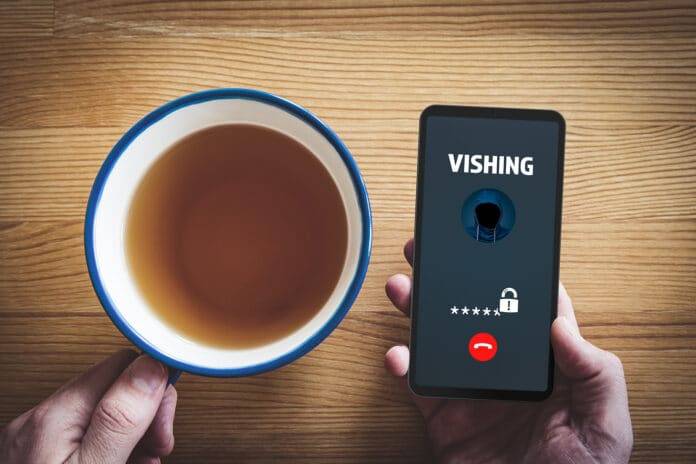What is vishing? Picture this – you visit a social media platform, and a toll-free number appears. When you dial it, a technician is willing to help for a price. Maybe he asks for credit card information to pay for software. After that, you realize the software doesn’t work, and the helpful technician disappears. Guess what? You’re another victim of malicious vishing. What phishing is to emails, vishing is over the phone.
What is Vishing
Vishing is a phone scam designed to steal information and money. The call appears like it’s coming from a trusted source – but it isn’t. Phone scammers tend to spoof legitimate phone numbers to look less suspicious. Also, in most cases, they make the problem sound urgent.
The unsolicited caller can ask you to verify your identity. He can also request your PIN to unlock the account. Some scammers use voice-over-internet technology to spoof the ID and make it appear like it’s coming from a trusted source such as a government agency or bank. This deceptive practice is often perpetrated through short messages or email.
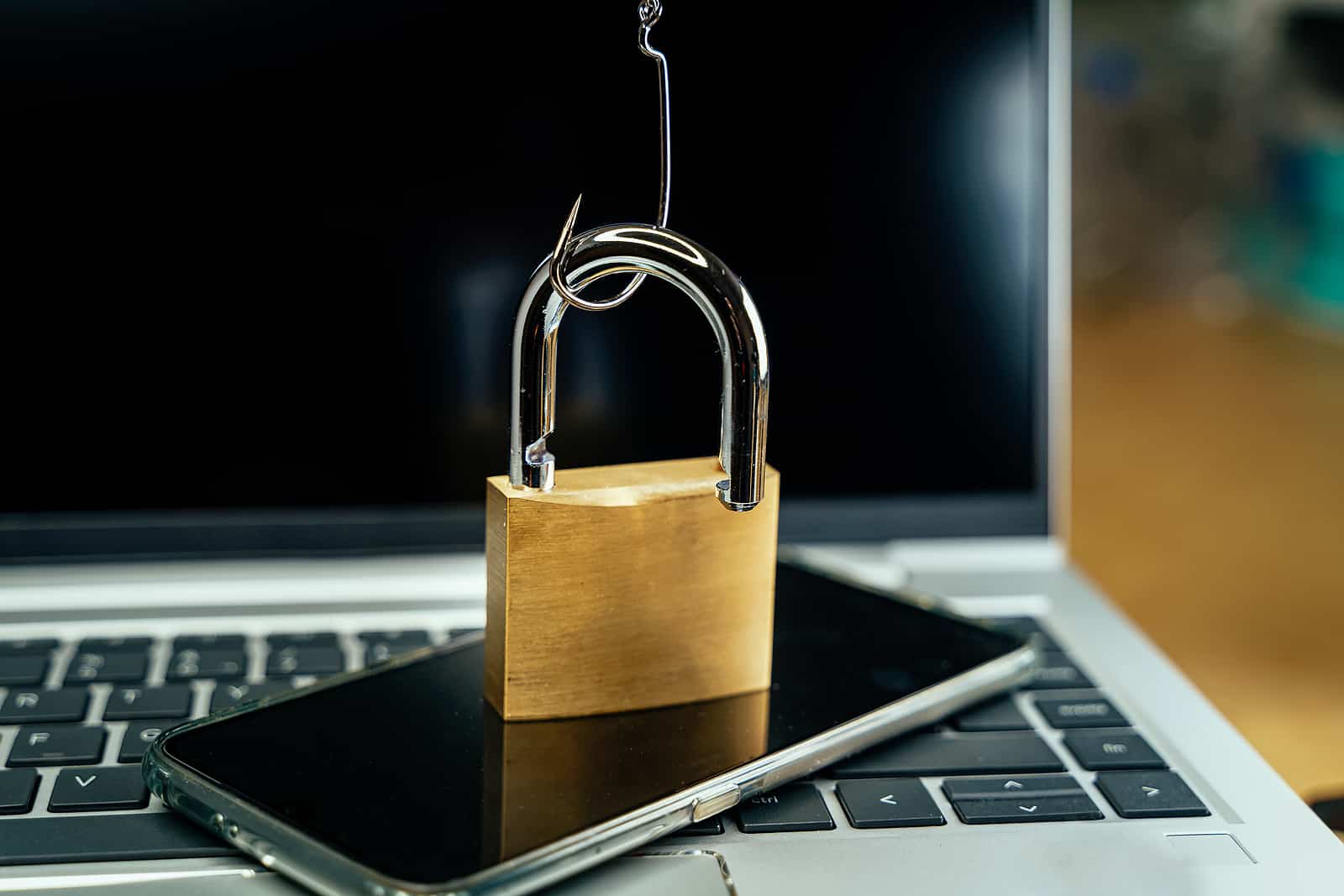
What is Vishing?
The criminals can initiate several charges, like fake antivirus software, based on the information you give. They create a simple solution in soothing tones to lure you into their nest. Once they control your device, they can access everything you have stored, especially banking information.
What phishing emails try to do is to mimic actual companies as closely as possible. Criminals know that talking fast and persuasively can catch many people off-guard. The main reason why these criminals are so convincing is that they use the information they have collected from legitimate sources. What is vishing, and how does it happen?
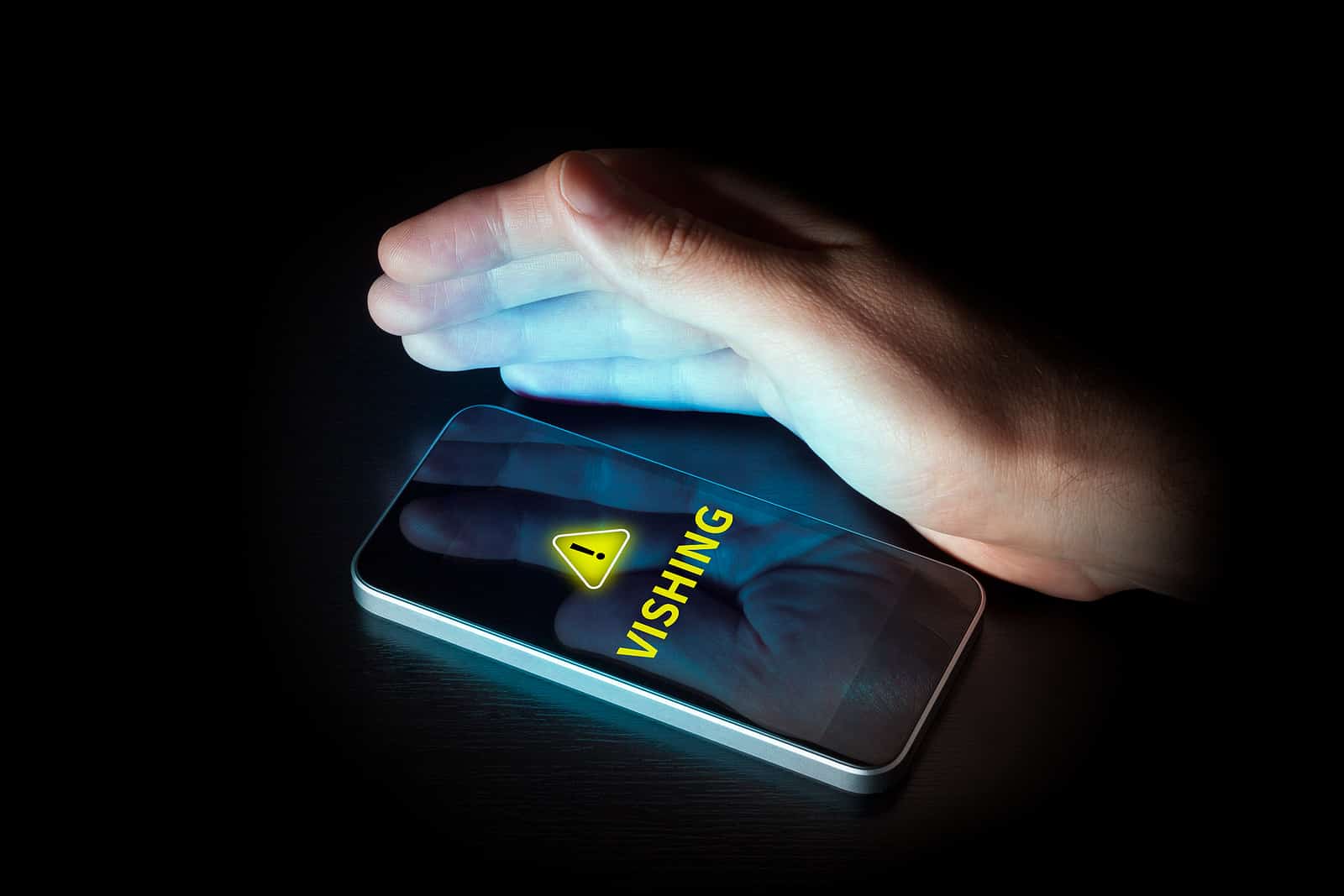
What is Vishing?
First, Cyber criminals do background research on their victims. They can send emails hoping that someone will respond. Others use software to make the call appear like it’s coming from the same area as the victims. The goal is to trick the victim into giving confidential information, including passwords and personal information.
Scammers use social engineering techniques to pose as someone from a trusted organization. Then, they pressure the recipient to illicit a frantic sense of urgency. The goal is first to create instincts of fear that something terrible will happen and then trust in the scammer’s desire to help.
The scammer can ask for credit card details, bank account information, or mailing address. Others try to connect with your computer through sharing programs. They aim to either transfer funds themselves or get the victim to take action and send them sensitive information or work-related documents.
Once the criminal has all your information, they can proceed to commit further crimes. For instance, they can decide to drain bank accounts or make unauthorized purchases. What phishing generally does is install malware on your device. What is vishing, and why are instances of it on the rise?
A Vishing call can come from an automated robocall technology or an actual person. The caller may know nothing about you. Other times, he can request information like a few digits of your social security number to win your trust. The caller can pretend to be a trusted colleague if they know where you work. And every time they contact you, they ask for additional information.
To know what is vishing, you can expect a demand for payment as soon as the scammer feels they have enough information or control over your device. Some pretend they work for government agencies, including the FBI or the IRS. The scammers can say that you owe them money, and fines are increasing. They can even send text messages to make everything appear legitimate.
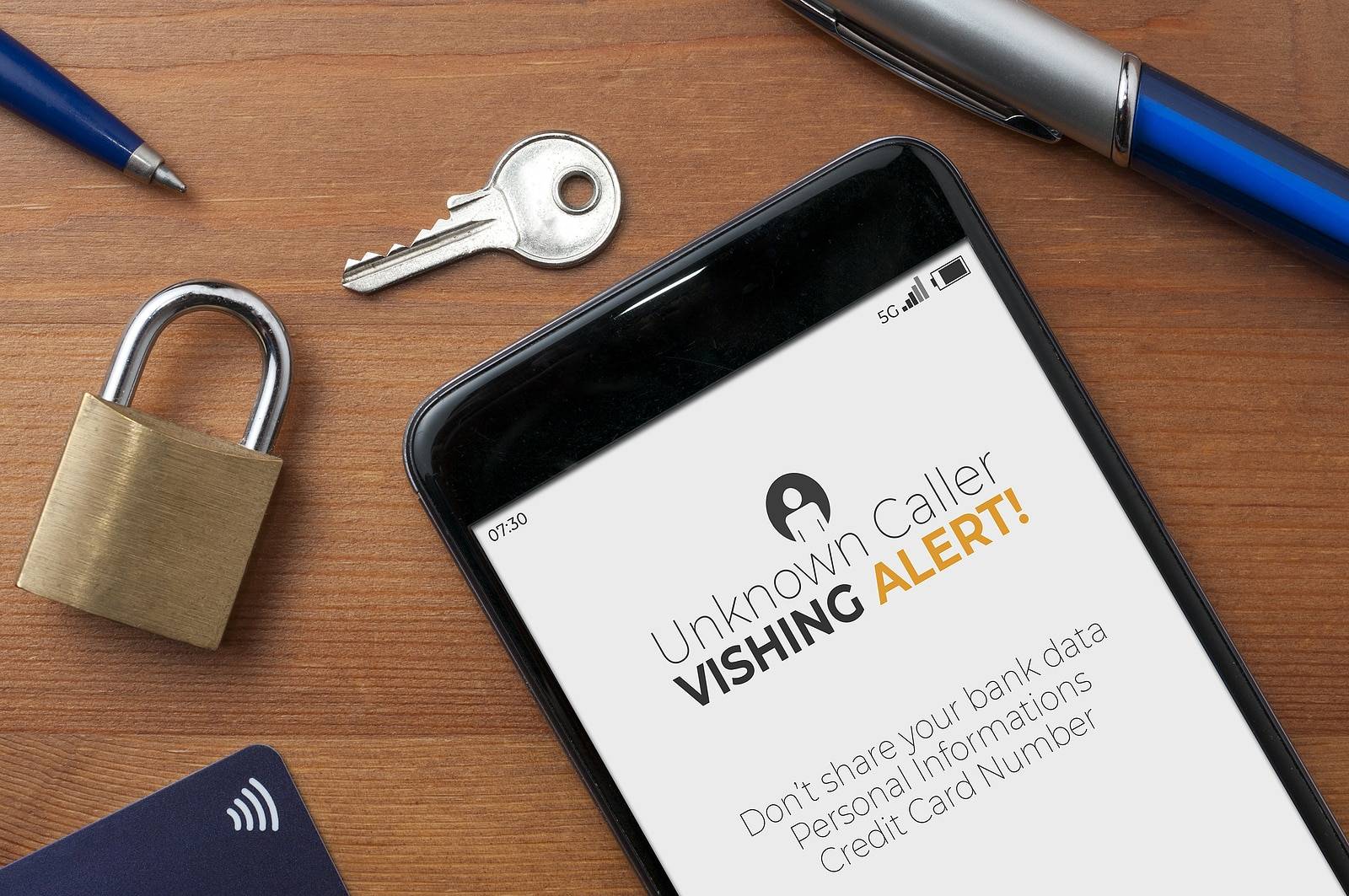
What is Vishing?
Solving a problem with your bank account is frequently used to answer the question of what is vishing. An anonymous caller (purportedly from your bank) can explain a problem with your account. The caller can request things like the account number or access code.
Whether you speak with a real person or receive a recorded message, scammers can talk about a payment you recently made. Often they request that you verify your debit or credit card information. Never give your personal information to someone who calls you. Hang up, research the phone number of your banking institution on the internet and then call them back. Most financial institutions have a policy to never request account information over the phone.
What is vishing can also be centered around technical support calls.
You can receive unsolicited voicemails or calls that look like they are coming from a legitimate company. Some can ask you to call their phone number to resolve a technical issue. There are many ways scammers can reach out as tech support. For instance, some can create a spam pop-up message. Others can lure you into believing that your computer is infected by malware.
What is vishing can be explained by this type of scenario. Once you call the number on the fake pop-up, you are directed to phony tech support. Once the scammer has you afraid that your device is infected with malware, they often request remote access to the device. Then, the scammer will ask you to download a piece of software to fix common issues. Do not ever give access to your device to an unknown individual.

What phishing emails and vishing calls that inform the recipient that he has won an award are often successful. Some say you can cash in a limited-time offer and request payment information. All you have to do is give out your information to claim the prize. Or you may just need to pay for processing and shipping your prize. They will then request more information such as name, address, birthday, and a credit card or bank account details. Again, do not give out sensitive information to unknown and unverified individuals.
Here are some more typical scams to explain what is vishing.
Some criminals can pose as representatives for Medicare or other government services. These scammers use the guise of helping you receive payments. Other criminals use the paycheck protection program to target small businesses seeking loans. Again, keep in mind that government employees will not call you unless you have contacted them first.
The Social Security and Medicare scams are currently the number one method scammers use to reach older adults. The crooks pose as Medicare representatives and try to glean financial information from the victims. Then, cybercriminals use the details to steal money from the benefits.
Some scammers can claim you have a tax refund and need your banking information to deposit the funds. Others take their trick a notch higher and claim that you haven’t paid your taxes and the matter is subject to an investigation unless you make an immediate payment. Make sure you understand what the IRS can or can’t do. When in doubt, hang up and contact the IRS directly.
Cybercriminals use VoIP technology to create fake numbers. They are tough to track and hide. Some criminals make numbers that appear to be from local hospitals, government institutions, or police departments. The best way to avoid being scammed is to hang up, look up the institution’s phone number and then call back and speak to a verified representative.
Vishing can be particularly difficult to trace when conducted using VOIP. Some scams are outsourced from other countries – this can render sovereign law enforcement powerless. This is why it is essential always to safeguard your personal information.
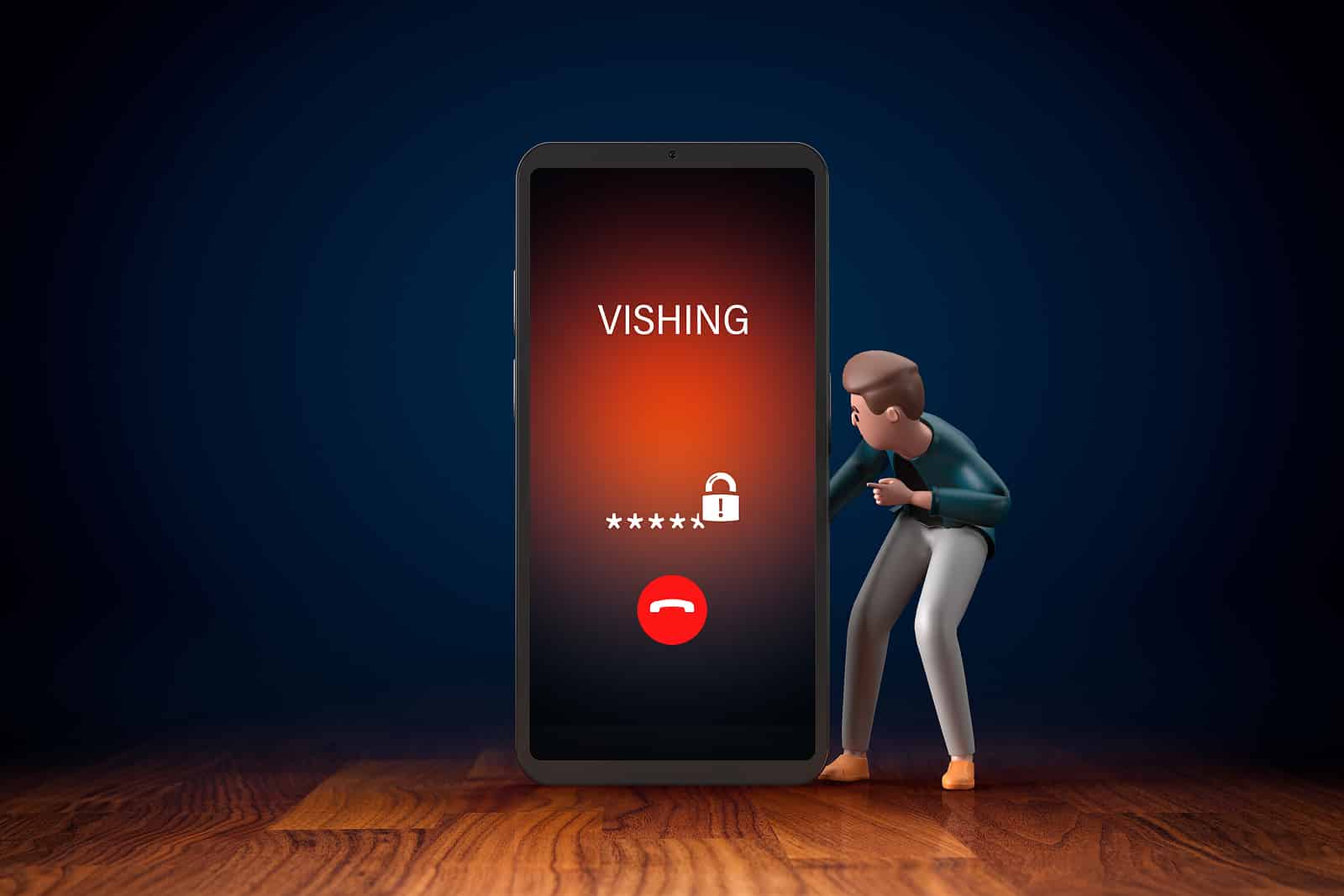
The criminals use specific software that shows the area codes. When the call is automated, the message urges the intended victim to provide bank account information, credit card details, etc. Still, the message can suggest that you use the information to confirm the account details.
Dumpster diving is a simple but popular method for collecting popular phone information. The dumpster drivers locate for financial information, medical bills, financial statements, etc. Scammers can use this information in many different ways. While dumpster diving may seem like a joke, the person going through your trashcan can find everything they need to commit identity theft.
How to Prevent Vishing
Don’t answer calls from numbers you don’t recognize. Some vishing calls can leave voicemails with a callback number. You should not call the number if you don’t know it. Remember that some agencies won’t call you unless you’ve contacted them first.
If the person provides a callback number, it could be a scam. It would be best to search for the company’s phone number independently rather than call back on the given number. Take the time to search for and confirm the company’s actual number.
Once you suspect a specific number, you should hang up before you give personal information. If the call is legitimate, only call back after you’ve verified the number independently. Don’t just respond to the caller just because they have mentioned a specific bank. Never respond to emails or messages that ask for your phone number.
If a recorded voice message prompts you to press a specific button, don’t do it. The message can say press 2. Scammers use this method to initiate robot calls. They can also record your voice and use it later to navigate automated voice menus. Try not to say yes; use aye, affirmative or correct instead, as they will not work with most automated voice menus.
Don’t give your personal information, ever.
You should not give your personal information to any unknown source. Scammers typically use what they know about you and the details to trick you even more. A quick check of social media sites can often give them enough information to lure you into thinking they know you. Your bank, hospital, or police department will never call to ask for your personal information.
If a caller is trying to give you something, ask for proof and ask them to verify where they work. Then hang up, research the company online and confirm all the information they gave before taking any action. Also, it is crucial to be aware of the scammers’ behaviors.
In any vishing exercise, you should be careful of the language the scammers use. Be on the lookout for words that evoke fear, greed, and trust. Is the caller becoming more urgent? Hang up and if they call back, gauge if they are upset or angry. True professionals will likely not call back; they will wait for you to call them.
What phishing involves is fake emails, text messages, and fake websites to steal from victims. What is vishing, on the other hand, uses calls and voicemail messages to steal from the victims.
With simulations, you can learn how criminals use voice messages and focus on human behavior to trigger an automatic trust response. Creating internal security alertness comes with knowledge and practice. When you know what to look for, you will be alerted to scammers much quicker. By understanding what is vishing, you become much less susceptible to scammers.
Once you spot a vishing attempt, you should take immediate steps to protect your personal information. This may include changing your passwords and contacting your bank to ensure nobody has interfered with your account. And no matter how harmless the call seems, you should never give out your personal information. While it can be tempting to give in under pressure, you should remain vigilant against vishing attacks.
Read more – Who’s Watching You? Amazon Ring Devices Are Being Hacked?


